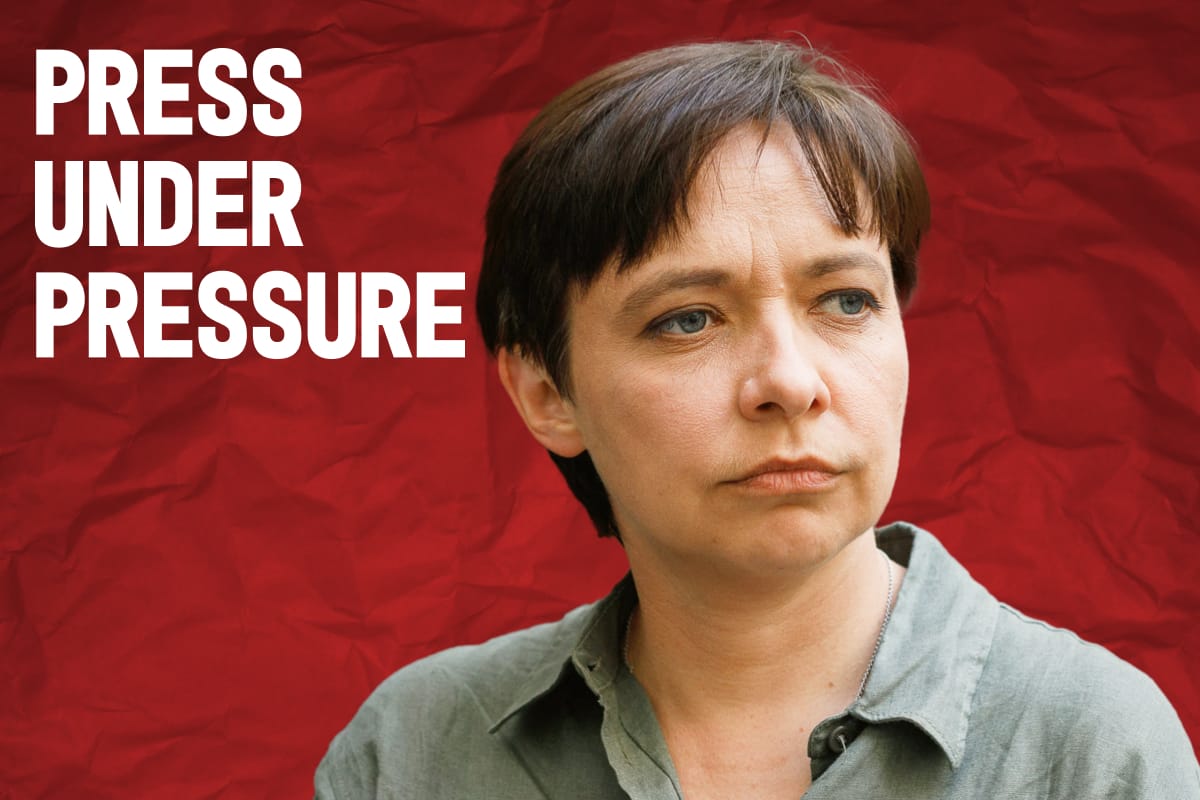
I didn’t have any expectations that I would be released in three or ten days. After all, I’m the editor of the economy and big business department, and I’ve seen how they treated other companies in criminal cases. Many companies in Belarus have found themselves in a tricky situation where a large number of employees would be arrested and, depending on the arrangements made with the owners, things could go in different directions. There was also a political component to our case. From the beginning, I prepared for at least some months behind bars.
My observations were that it usually took up to six months to get the rank-and-file out of prison, and up to a year to release the top executives.
Despite my background in journalism, I had very little idea what life in prison would be like. People tend to be pretty tight-lipped about it, and everyone I’ve discussed it with in the past has been the kind of guy who won’t tell you how they suffered from showering once a week.
I was always surprised when people who’d already been inside said it was no place for women. Up until I was arrested, I thought this was a case of sexism.
It’s like an older man talking to a young woman and deciding where she fits in and where she doesn’t. But now I can’t argue with them. It’s harder for women to serve time because of their physiology. It seems that men may experience movement and hygiene restrictions a little more easily than women.
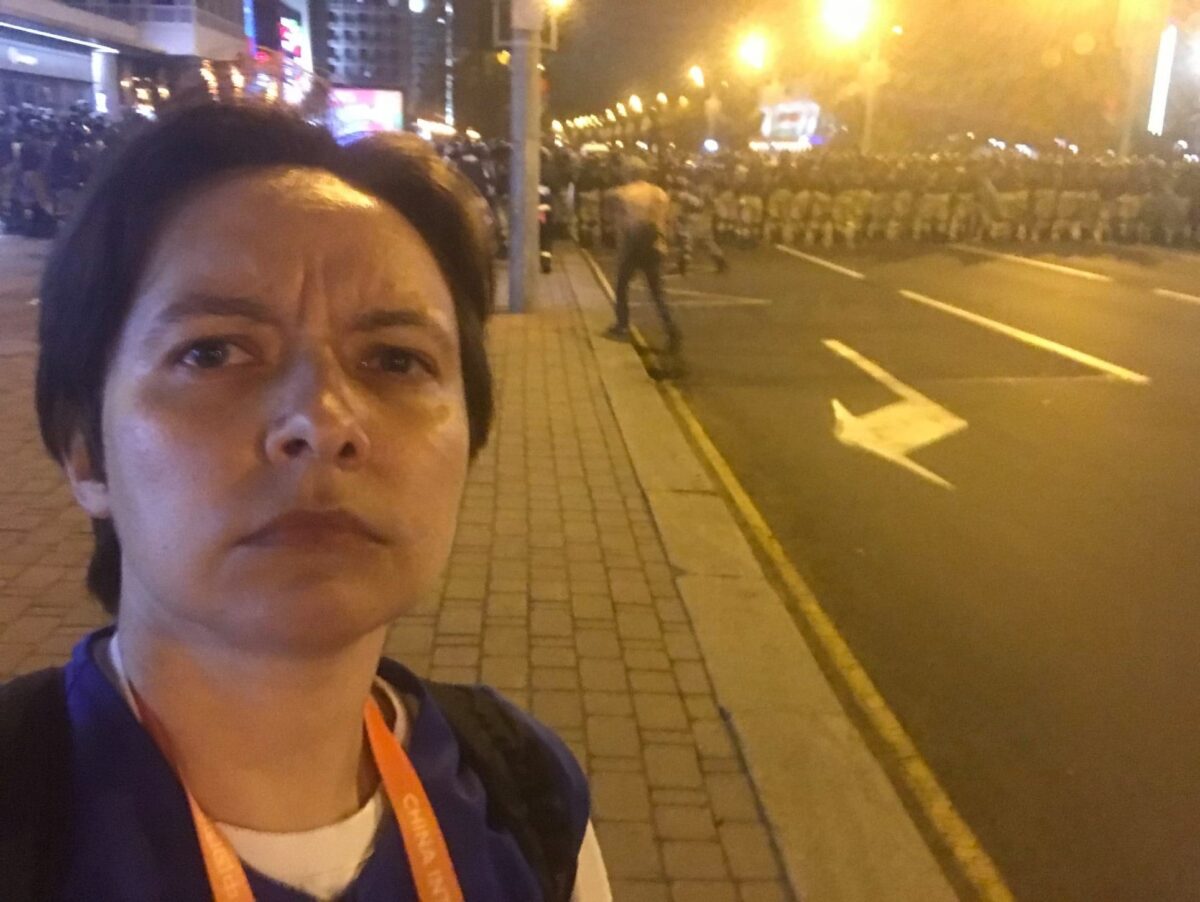
It was particularly bad at the Minsk Temporary Detention Facility. It’s been said by everyone that you have to endure sleepless nights there because of cold, you can’t lie down because the bunks are ice-cold, and you can’t even wash your hands properly because the water is ice-cold, too. I suffered without food, too, because the food they provide is horrible and they don’t accept care packages.
Once you get to the pre-trial detention centre, it’s a lot easier. They let you shower and accept care packages from family. I’m really grateful to those who took care of it back then – we had clothes, food, and everything else. When I got to the cell and saw familiar faces, I was really pleased. I didn’t even have time to think that the inmate crowd could be very different…
People often say that most of the remand centre population are political prisoners, but that’s not actually true. In fact, we were probably only half or even fewer. There were the socially excluded and the alcoholics. But when you see your kin in the cell, it makes things a lot easier. To avoid getting caught out and ending up in segregation, it’s a good idea to know all the ins and outs of inmate behaviour rules.
People struggle physically in segregation – it is a cold, damp place to be, after all. We would be put there for a short time when our cell was searched. Well, they took us there so we wouldn’t have to stand in the corridor for twenty minutes.
It was tough for me emotionally in the remand centre. My family members were seriously ill at the time, and my father died a month after I was arrested. I was always on edge about home affairs, and the helplessness was really getting to me. I knew my family needed me, but I couldn’t do anything. Well, I just wrote letters…
Thankfully, at least the letters from close relatives arrived. I’ve received all the letters from my sister, except for one that the censor blocked. That was over 150 letters – five letters every week. Mine also reached her. I also received letters from my mother and elder sister, but they didn’t write as much.
As for friends… Well, with one friend, out of 72 of his letters, only 35 arrived. And that was a good rate. It’s not uncommon for none of, say, 10 letters to make it. It’s useful to have a way of tracking letters. This way you can see that one did arrive, but it was marked No. 8.
It’s pretty sad to get letters from strangers but not loved ones, especially when they’re just a few words. But there were different types of letters from people I didn’t know, too. Some were really nice and personal, and they were very supportive. In these letters, people would often share a little about themselves, mention something they had read, or talk about their travels in Belarus.

Some people added drawings and pictures, which was a great idea. In contrast, some letters just said, «We’re expecting your release». It’s important, of course, but when you haven’t had a letter from your family in two days and you’re waiting for something to arrive that you can read and reply to, and all you get is two lines of clichéd text… it’s a bit disappointing. But I do understand that a person may have already written 20 long letters and may not be ready to write another one.
I brought all my letters to the outside upon release.
While I was in captivity, I found it interesting to classify the people who worked there and to understand more about the kind of people who handled us. I did this purely for research purposes. It was difficult to classify them, as these are very different people. As different as possible. At times I could hardly believe that these people were working together in the same institution and even in the same function. Some had only graduated from university yesterday and wanted to earn their stripes. There were also perfectly decent people, and you could feel that. People rotate, someone leaves, and some vacancies are filled by random people who aren’t very good at what they do.
Of course, having worked as a journalist helped me to communicate. Because prisoners are also very different. In my cell were women who were later sentenced to 12, 13, 16 and even 18 years. They knew that they were in for these gigantic sentences, and they struggled emotionally.
Some of them made some pretty dumb moves, and some of them did something so bad that you can’t even imagine how they could have thought of such a thing. In their day-to-day lives, they were all pretty ordinary, normal people. You could get along with them, but when you put them under such pressure and have them face these sentences, they were exalted and conflicted.
It’s worth noting that the guards’ attitude towards the women detained on drug or child pornography charges was much worse than towards the political prisoners.
We weren’t mistreated much inside the cell, either.
Some people were upset and angry that the politicals were introducing “oppressive practices” in the cells, forcing them to clean up every day, to smoke no more than once every two hours, and to ventilate each time after smoking. On the other hand, the political prisoners were pretty resourceful. They often had care packages delivered to them and could even secure a TV set in the cell. So we had every right to make our demands about noise, hygiene and food. So we generally agreed and rarely encountered people who were completely marginalised.
It was pretty tough in the remand centre during the pandemic. When almost the entire cell is affected by the coronavirus, it makes things very difficult. I was vaccinated. They even said that I was a very careful person because I had the vaccine before I was sent to the remand centre. And I was the only one who didn’t get sick, by the way. Great vaccine advertising!
I had the second round of vaccinations in detention and I’m really grateful for this opportunity because getting sick in a remand centre is really bad. There’s no one or nothing to treat people. How do you treat COVID-19? It’s a common virus, and the best thing to do is just lie down and drink more. It’s tough to warm up properly and eat right in detention.
It’s only those who’ve been charged with one offence and found out that they’re likely to be sentenced to home confinement who have a funny story to tell about their time in prison. In all other cases, time stretches out to infinity.
Of course, there are books and games, but there’s no way to really learn something and do something productive. You have a lot of free time, but there are seven other people around you 24/7. There’s someone watching TV, someone having an argument, and someone just chatting. It means constant noise and very low productivity. It’s not possible to take a walk or do any sports.
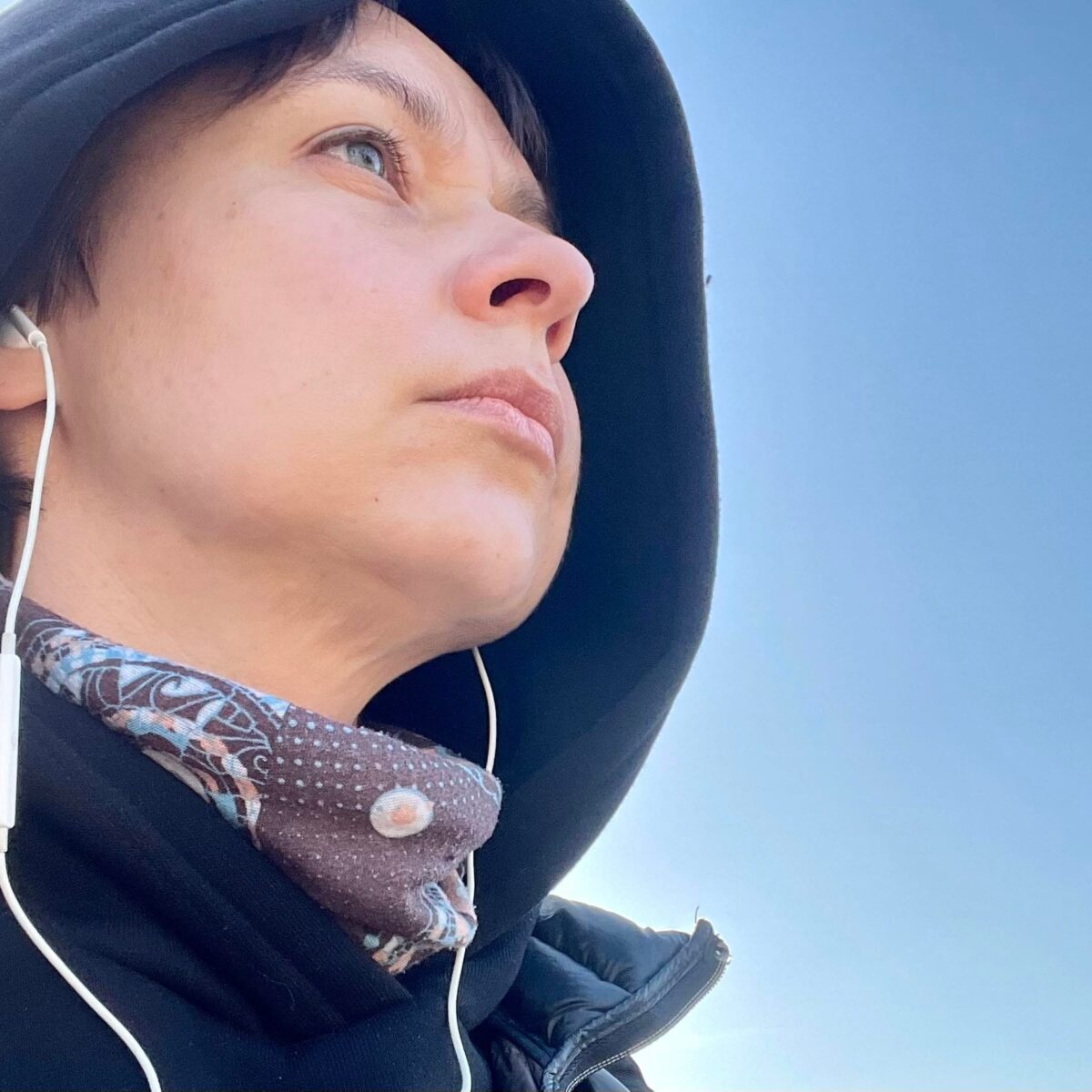
Sometimes things worked out pretty well. We could arrange our meals just right, even get some forbidden items, letters were flowing and cellmates were great.
I’m still not sure this was a useful experience for me. Nobody needed it, not me, my cellmates, my relatives, or anyone else.
If you’re only there for a few months, you might think of it as just a bad summer camp experience. But after 10 months, it didn’t seem particularly useful or meaningful. The skill of cutting vegetables with a thread… well, it’s not something most people need in peacetime.
Even if you know you’ll be released soon, there are people next to you who understand that their lives are just going nowhere. I was in a cell with a woman who had been sentenced to seven years for a political offence. And her daughter was kept in the cell next door. This is so sad and tragic! You can see how the whole family’s life is going down the drain.
In detention, you see family and loved ones disappearing on you. They simply can’t endure it and turn to other things in life.
It usually starts by them not putting what you want in your care package, and the inmates are very offended by that. Because it seems like I’m asking for a fingernail file, so why is it so difficult to just send the file? But to do that, someone on the outside has to spend half a day queuing to pass on a medical package. And they think: can’t she do without this little thing? This is where misunderstanding and resentment start. Then someone might fail to send a parcel or come visit.
Everything falls apart and starts to crumble. What positive lessons can we learn from that? People’s families have already been destroyed, even if it all ends tomorrow.
I’m really thankful to my family for sticking it out. I saw other people’s relatives saying: “We are tired, we need a break”. And it is really hard for them! They are always getting it hot and strong for failing to do something, like they have done something wrong or passed the wrong thing. They’re always explaining something and trying to get our feedback. They’re also paying for food, lawyers and other things.
I wasn’t worried about how my colleagues would react to Lebedzeva’s film. I was afraid that it would not work. Other people’s safety depended on it, and I was really worried that something would go wrong. It’s one thing to put yourself under fire and help someone, and another to do so and not get anywhere.
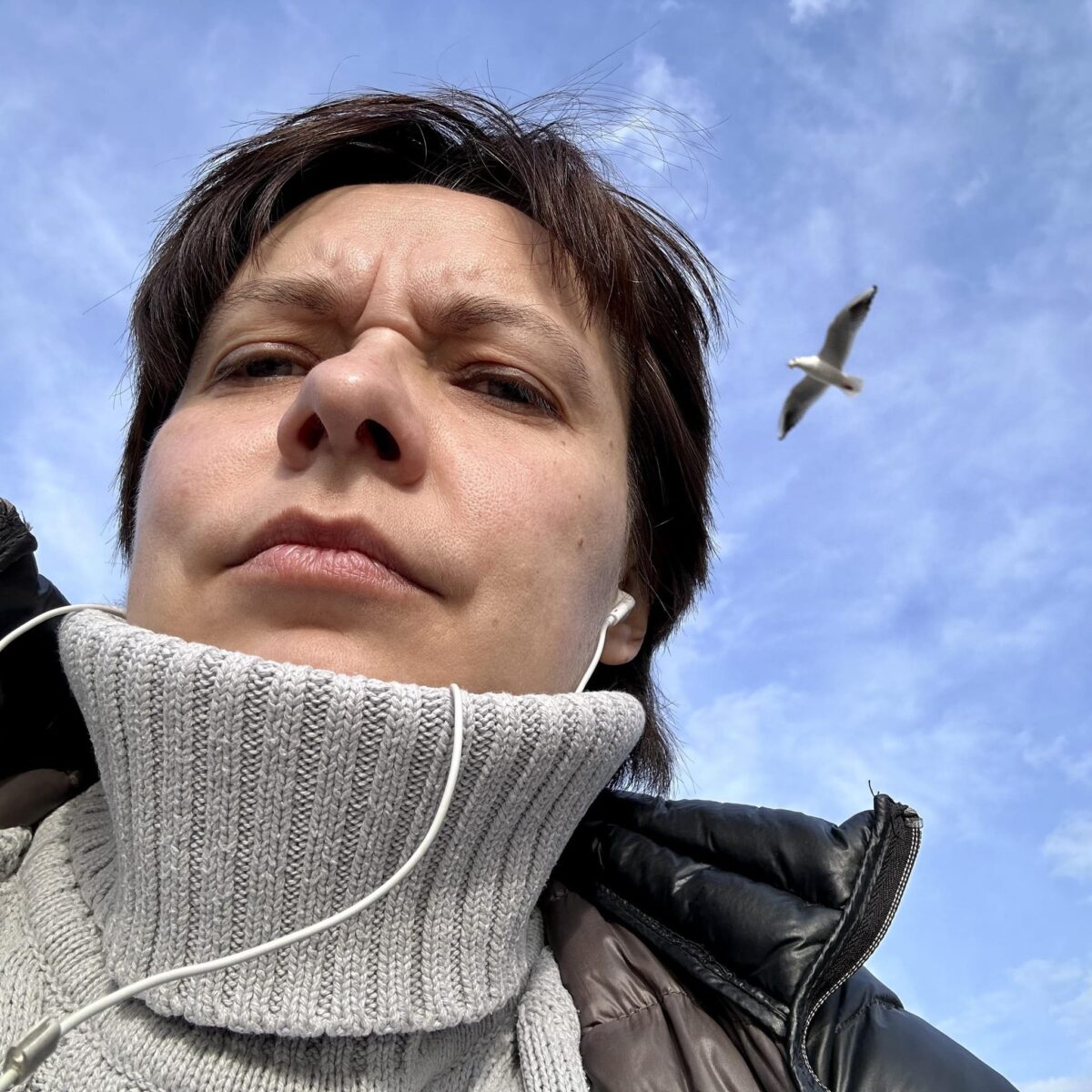
As for colleagues… Well, what can I do? If they want to decide differently, they are free to do as they wish. It was my decision as the head of the department who was responsible for her people. I couldn’t do anything else at that moment. I couldn’t make anyone’s situation worse, but I could make it better, and fortunately, I did. I had great support then, and the support team seemed more concerned than I was.
When I was in detention, it was pretty obvious that I didn’t have a job anymore because the company had been closed down. My career was over because it’s impossible to do journalism in Belarus. It was clear to me: There was a ban on the profession. On top of that, there was very little space left for economic journalism, and very few people had a demand for it.
And I didn’t want to put myself in the line of fire again. After going through it once, I understood that you could write something again, and someone wouldn’t like it again… And you won’t even be told what was wrong.
My text that was taken for review by extremist experts, was a little too mind-bending, a little sarcastic, but nothing was incriminating about it. And I understand that any text can be misinterpreted in some way. Will I be accused of threatening the state if I write that we have a monetary overhang? I don’t want those risks, thank you.
After my release from jail, I did not work for some time while in Minsk. They declared my colleagues extremists time and time again, so even if I wrote an economy-related column for another media outlet, I could frame them and myself. I understood that I was not ready to write anything new, I had not yet served time for my previous materials.
When I left, it was the other way around. I couldn’t do anything else, I was forced into journalism because I was a terrorist. What kind of company needs a terrorist as an employee? All Belarusian companies abroad employ at least a few people who visit Belarus. They definitely don’t need a terrorist at work. So where was I supposed to go? And because they could also be harassed, my whole family left with me.
There weren’t any journalistic opportunities at the time, but a foundation suggested I apply for funding to start my own media outlet. Somehow it all coincidentally fell into place at the right time.
All journalists, at some point, start demanding: “I need a normal life!” I think this is an essential moment of life that we all have to go through at some point. Especially when, like now, nothing special is happening.
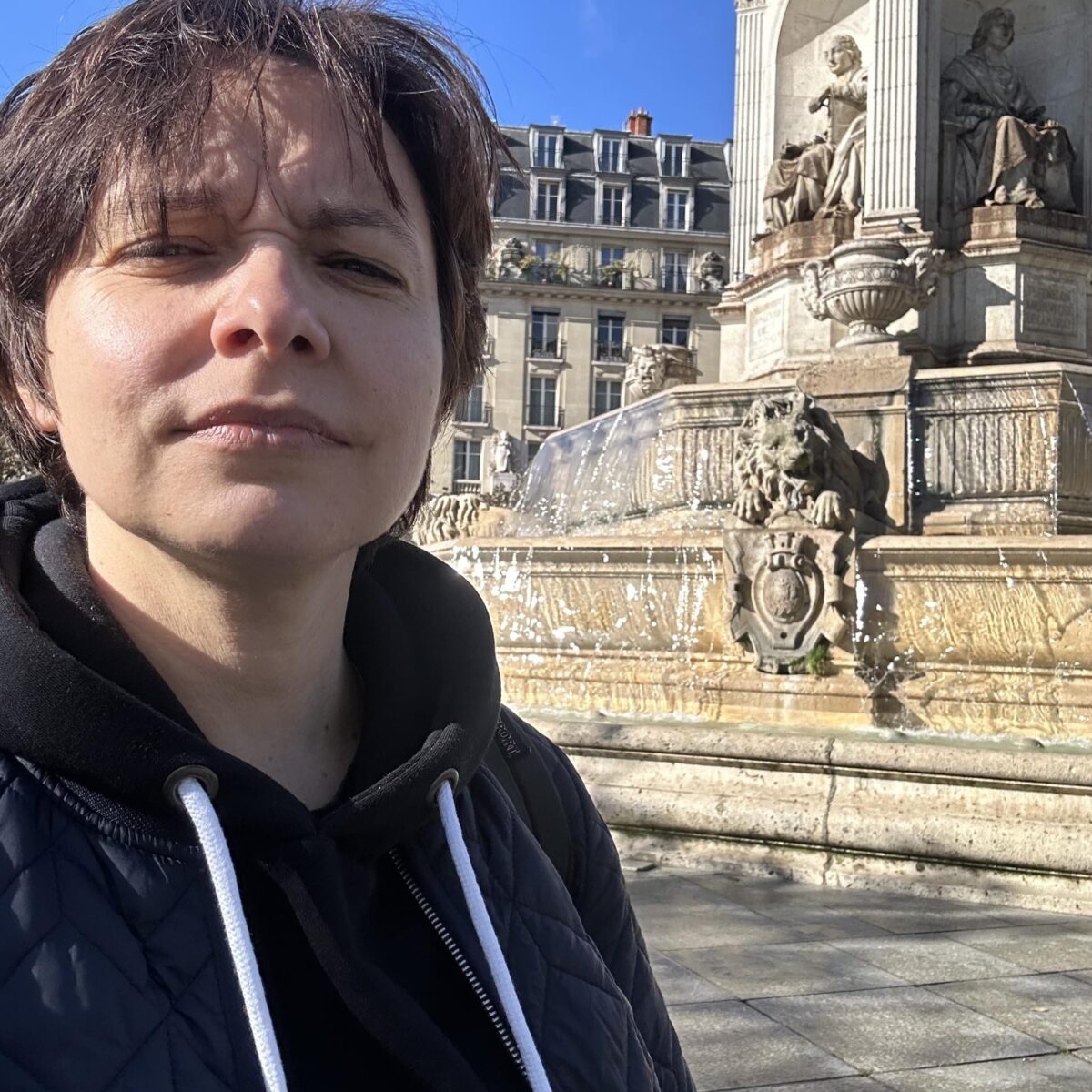
So you expect that something is going to change in Ukraine, that something is going to happen, but nothing does. And it turns out that it’s all our fault, we didn’t do more in 2020, we did things wrong. TUT.BY is to blame for everything.
For the time being, however, I decided not to think too much about it. There will be other possibilities and other ideas.
I feel very strange, naive and presumptuous right now trying to plan for the long term. Even when it comes to a bus pass, I buy it for three months and question whether I should keep buying one for a month instead.
Of course, I miss the way work used to be. There was a chance to chat with people, get the lowdown, tap into lots of sources and look at things from different angles.
If you’re labelled a terrorist or extremist, you tend to keep your distance from people. If they get in touch themselves, that’s great, but I’m a bit afraid to take the initiative myself. What if the person I’m trying to talk to is at work, so my message or call is unwanted? Or I’m putting someone on the spot with my attention?
Of course, I am nostalgic for the days when you could work both in and out of the field. My impression is that everyone is very much in need of normality.
Terms and conditions
Partial or full reprint is permitted subject to following terms of use.
An active direct hyperlink to the original publication is required. The link must be placed in the header of the reprinted material, in the lead or the first paragraph.
Reprints, whether in full or in part, must not make changes to the text, titles, or copyrighted photographs.
When reprinting materials from this page, attribution must be given to the Press Club Belarus “Press under Pressure” project, collecting evidence of repression against independent media and journalists in Belarus.